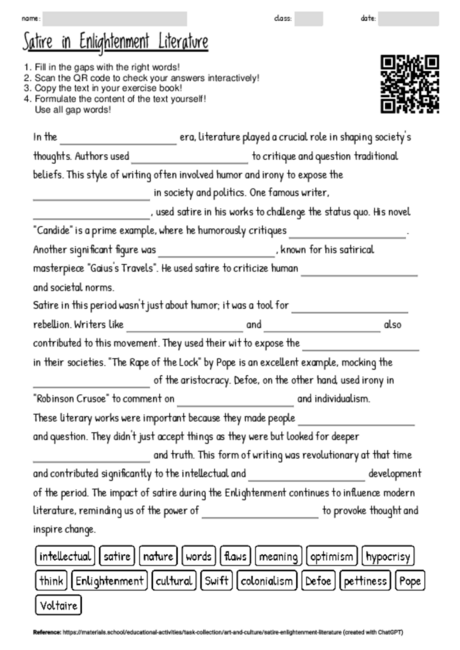Satire in Enlightenment Literature
Cloze texts, like the one created on the topic of satire in Enlightenment literature, serve as an excellent tool in various teaching and learning phases. They are particularly useful for improving reading comprehension and vocabulary skills. By intentionally leaving out key terms, students are encouraged to think critically about the text and use context clues to fill in the gaps. This not only enhances their understanding of the subject matter but also aids in developing inferential thinking skills.
The content of the cloze text, focusing on the role of satire in Enlightenment literature, is especially beneficial for students aged 12 to 16. It introduces them to important literary figures and concepts in an engaging and accessible way. Discussing writers like Voltaire, Swift, Pope, and Defoe, along with their works, provides a foundational understanding of how literature can be used as a tool for social and political commentary.
Moreover, the simplicity and clarity of the text make it ideal for this age group, ensuring that the information is not overwhelming. The use of satire as the central theme helps in igniting interest in historical literary trends and their impact on society. This can lead to more in-depth discussions in class, fostering a deeper appreciation for literature and its role in societal development.
Additionally, the cloze text can be a great starting point for various activities. Teachers can use it for group discussions, individual assignments, or as a prompt for creative writing tasks. It can also be integrated into lessons focusing on literary styles, historical context, or even as a comparison point with modern satirical works.
In conclusion, this cloze text is not just a learning tool; it's a gateway to exploring the rich world of literature and history, making it an invaluable asset in the educational journey of young learners.

